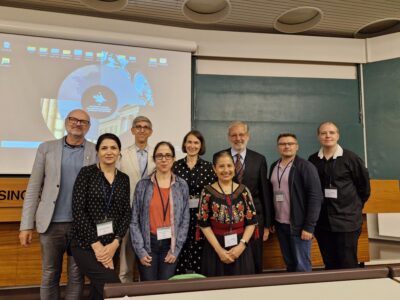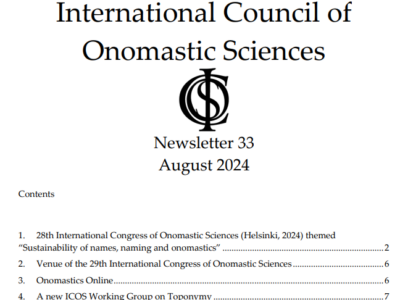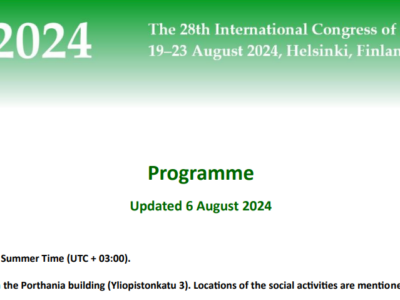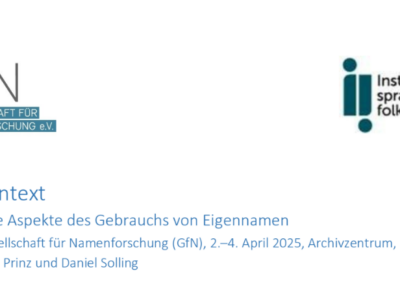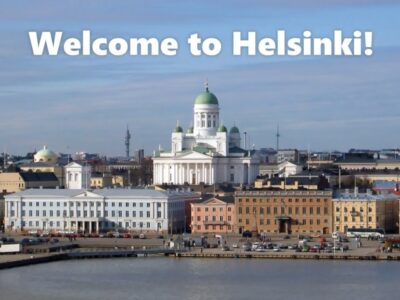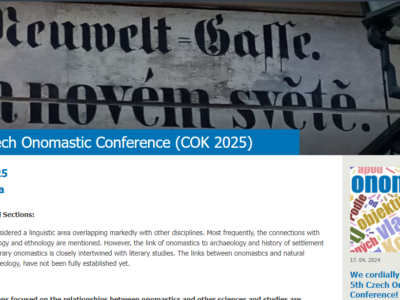
Goodbye ICOS 2021! See you in Helsinki at ICOS 2024!
The 27th Congress of ICOS in Krakow, which ended 5 days ago, was a great scientific and global event. Over 200 papers and much more online participants from almost 60 countries.
See you all in Helsinki because the 28th Congress will be held there in 2024. The purpose of the congress is to advance academic research on names and naming by bringing together scholars from all over the world. The studies presented in the congress can represent various academic disciplines and categories of proper names.

The theme of the congress is Sustainability of names, naming and onomastics. The presenters are encouraged to evaluate how their work could promote the goals of sustainable development.
The congress is organized by the University of Helsinki, in collaboration with the University of Turku and the International Council of Onomastic Sciences.
Background, motivation and relevance
Sustainability has become a crucial topic in society and science. Phenomena like climate change, globalization, urbanization and digitalization force us to re-evaluate our procedures and modes of action in all sectors of our lives. According to Soini & Birkland, the concept of sustainable development, first defined in 1987 by the World Commission on Environment and Development (WCED), refers to global and intragenerational equity and fairness in the distribution of welfare, utilities, and resources between generations. Sustainability is usually considered to consist of environmental, economic, and social dimensions or pillars. More and more often the scholars consider that there is also a fourth pillar of sustainability, i.e. cultural sustainability. Cultural sustainability means the maintenance of cultural beliefs and practices, heritage conservation, understanding culture as its own entity, and answering the question of whether or not any given cultures will exist in the context of the future. The cultural dimension is strongly associated even with language, which constructs realities. (Soini & Birkland 2014.)1 As names are a part of language, we can ask in regard to cultural sustainability, e.g., what do names do? How do names represent our reality and our identities? Can we see via names what are the existing power structures in society? How are names taken into consideration in the local and global planning?
Sustainability transformations are fundamental changes in societies paving their way towards sustainable well-being of nature and humans. To achieve these sustainability transformations, new approaches and methodologies must be developed in the field of sustainability science. This also applies to onomastics. With the congress theme, Sustainability of names, naming and onomastics, we want to encourage onomasticians around the world to evaluate how proper
names and onomastic research can support sustainable society and sustainable culture.
The workshops and individual papers might cover (but are not limited to) the following topics:
- People’s relation to their environment (both physical and digital) from the standpoint of
toponyms and other place-related names - Names and minorities, the power relationships conveyed by names
- Urban toponymy in smart and sustainable cities
- Commercial names as a part of sustainable economy
- Identity and naming, the rights to express identities via names
- Changing names (place names, personal names, commercial names etc.)
- Names in digital world
- Names and law-making
- Traffic and tourism
- Onomastics as a sustainable science
Organization committee

